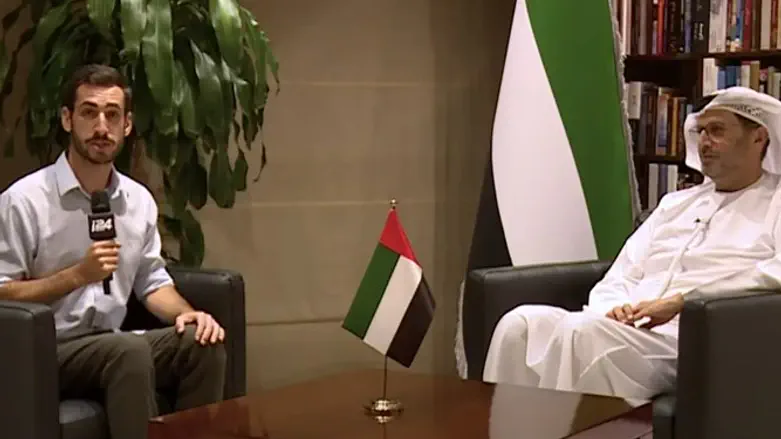
There has long been this belief held that the conflict between Israel and the Palestinians might never end because the Palestinians never give up and accept reality.
This position does hold a lot of merit, because it could easily account for successive Palestinian leaders giving up having their own state if they were also called on to countenance a Jewish one as well. It could account for the fact that although the Palestinians have launched countless conflicts, intifadas and attacks against Israel and its citizens, they rarely gain much from it.
The Palestinians remain very proud of the concept of Sumud, usually translated "steadfastness" or "steadfast perseverance" which means they will never give up until ultimate victory.
However, recent events have demonstrated that the Palestinian leadership can understand when it is beaten.
When the Abraham Accords were first launched in August, the reaction of Palestinian leaders was scathing. They called it a stab in the back, terming it “a betrayal against Jerusalem, Al-Aqsa Mosque and the Palestinians” and recalled their ambassador from Abu Dhabi. It was a rare moment of unity amongst all Palestinian leaders and factions.
There was a similar response when Bahrain joined its gulf neighbors, and the Palestinian ambassador was recalled from Manama.
The Sudanese Israeli agreement in October was also condemned.
One month previously, the Palestinians took a tried and tested route to ensure their condemnation came with teeth by turning to the Arab League, amongst other institutions, to back their position. Their argument, not without merit, was that these agreements went against the Arab Peace Initiative, which pledged the full relations of its member states only after an agreement has been made with the Palestinians first.
Even though the Palestinians held the rotating presidency of the Arab League, and the Arab League foreign ministers have endorsed every draft resolution the Palestinians have put forward, the resolution condemning the Abraham Accords was defeated and dropped.
Arab League Assistant Secretary-General Hossam Zaki explained that the Palestinians were pushing for a maximalist position in the resolution and would seek no compromise, so it could not be supported.
It was the usual ‘all or nothing’ approach of the Palestinians that Israeli leaders, security officials and diplomats are familiar with. This was a rare case when they got nothing from the international arena.
It was one of the heaviest blows for Palestinian diplomacy in recent times.
Nonetheless, it was a defeat that they learned from and eventually accepted.
When, only a few weeks ago, it was announced that Morocco and Israel would establish full relations, the Palestinian Authority and its leaders were noticeably silent.
No fiery communiques, little action on Twitter and no ambassadors removed. Local Palestinian media commentators reported on directives from the highest levels that were sent out commanding all Palestinian Authority or Fatah official to resist commenting on the latest normalization deal.
They saw the congratulations arrive from Egyptian President Abdel Fattah el-Sisi, who welcomed the announcement, saying that the deal was an "important step towards more stability and regional cooperation". They understood that the deal could not have happened without Saudi approval.
The Palestinian leadership understood that any further negative reactions or condemnation would achieve little and harm their standing and diplomatic relations.
The Palestinian Authority understood its defeat and was now ensuring not to exacerbate it.
This should be a good lesson for Israel in how it sees its ongoing conflict with the Palestinians. It should demonstrate that Sumud is little more than a slogan and that if the correct pressure is applied, the Palestinian leadership accepts defeat and will accept the reality that it is faced with.
This should provide a tailwind for the Israel Victory concept, which simply applies the logic that the conflict will end only when the Palestinians give up on their over 100 years of violent rejectionism.
Many have thought that it is not in the Palestinian DNA to ever give up, and the only way the conflict ends is through great pain and suffering. The Palestinian DNA does, it seems, hold the possibility of giving up.
The way the Palestinian leaders have reacted to their stunning defeat in the diplomatic arena should press us to doubt that. Perhaps these developments have shown us that there is the possibility, however possibly remote, of another way.
This conflict can end, ensuring a better future for both Israelis and Palestinians. Too much blood has been shed and is still being shed as we sadly witnessed with the recent brutal murder of Esther Hurgan.
Israel must pursue the victory concept because it can and will end the conflict.
We know this now, because recent events have demonstrated that the Palestinians do understand defeat.
Nave Dromi is an Israeli commentator and director of the Middle East Forum’s Israel Office.
